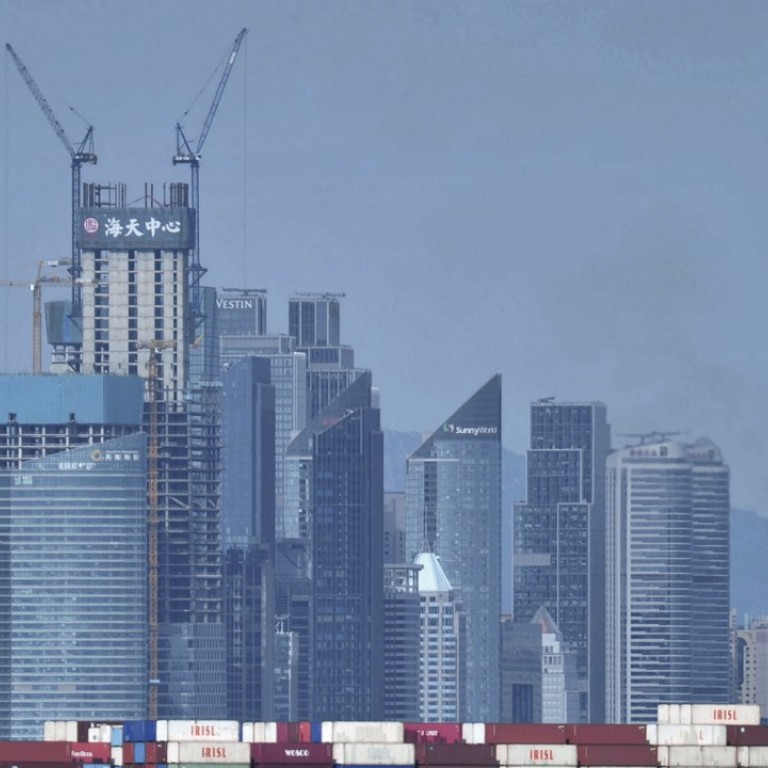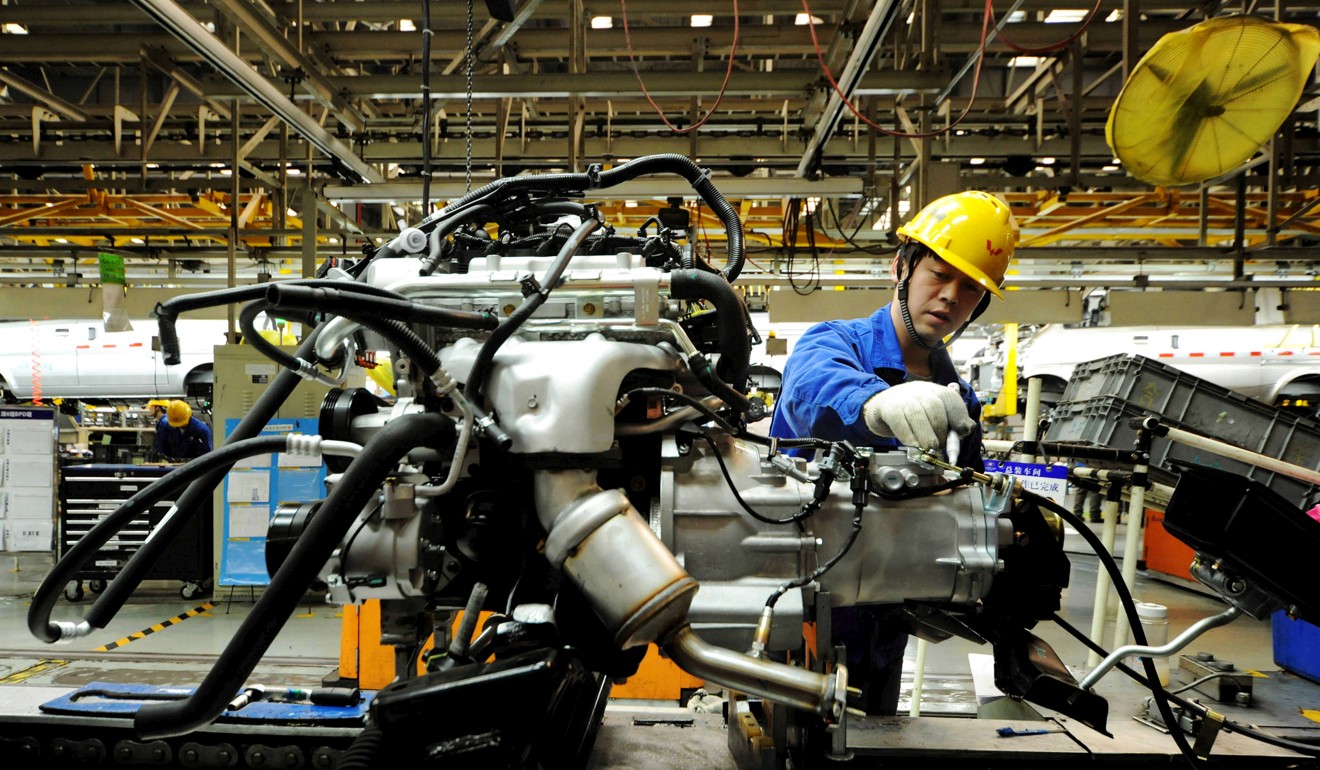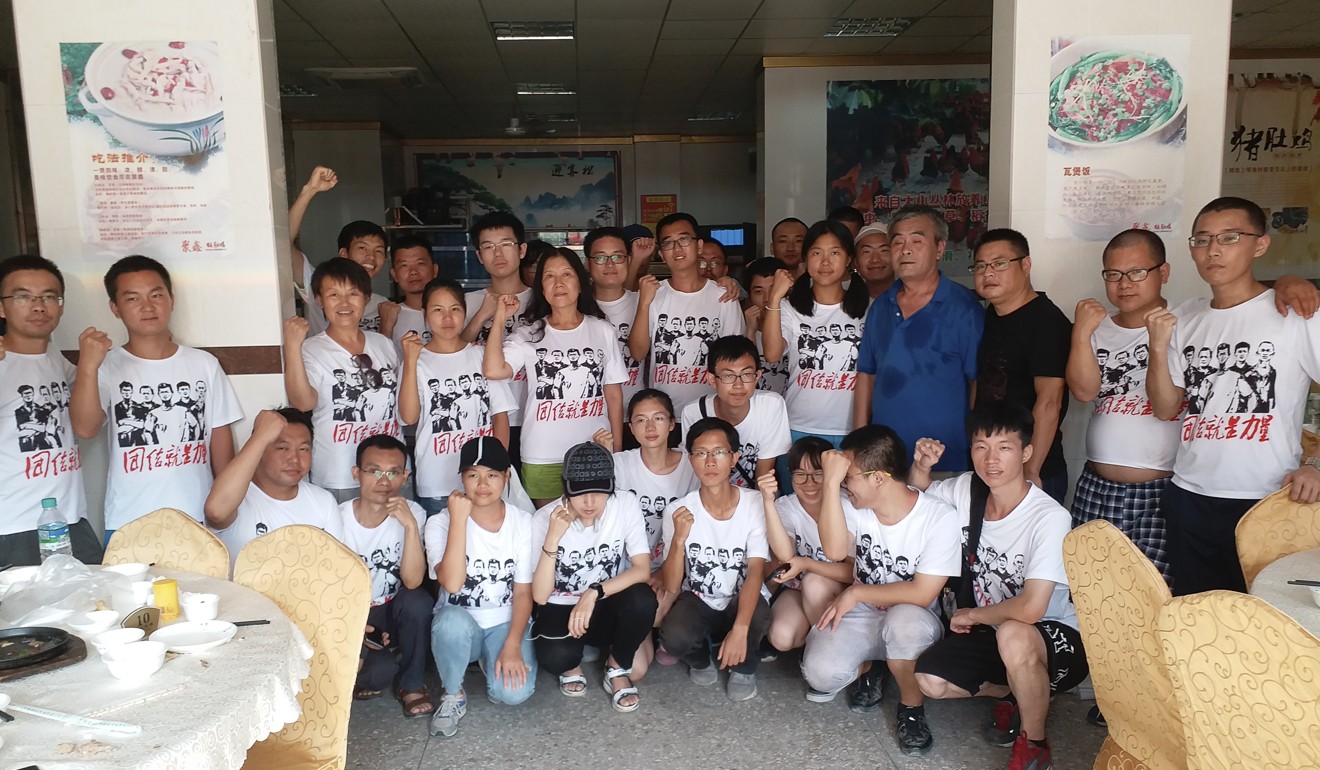
Chinese private sector fears grow over state’s role as Qingdao sends officials into firms to set up labour unions
Eastern city’s push to set up state-controlled unions inside private enterprises increases businesses worries of further intervention in their operations
The Qingdao city government in eastern China has decided to send state-appointed cadres to act as “labour union chiefs” into 92 local private enterprises – a move that raises concerns over whether the state is extending its reach too deeply into the private sector.
According to a report in the official newspaper Qingdao Daily last week, the city has selected the 92 cadres as the first batch of government-appointed “first chairman of labour unions” at “non-public enterprises” in the city in Shandong province.
They will spend at least eight days a month at the private businesses for the purpose of setting up and running the state-controlled labour unions within the private businesses, according to the report.
While China’s law stipulates that any employer with more than 25 employees “shall” set up labour unions, which in turn must report to the government, the law is not strictly implemented in the private sector.
It is rare, if not unprecedented, for the government to send labour union officials into private businesses.
The Federation of Trade Unions of Shandong said the initiative would also cover other cities in the province, including Dongying and Weifang.
China’s export base lures professional services as trade war bites
The move has caused concern among some private business owners and analysts who worry it is a signal that the authorities will further intervene in private firms’ operations when they are already under pressure from rising costs, higher taxes and slowing demand.
These trade union officials are set to “guide” private companies to set up labour unions and ensure the employers contribute sufficient funding.
China requires employers to pay an amount equivalent to 2 per cent of all salaries to fund the labour unions.
An official from Qingdao Federation of Trade Unions, who refused to offer his name, said the selected officials were “under training”.
He declined to offer the list of the first batch of companies to which the union officials would be attached.

Private firms said they were not happy about the development.
“Honestly, we don’t want any official to be sent to our company, especially at this moment,” said Rob Li, who runs an electric wire and cable manufacturing company in Weifang city.
His company is not in the first batch of private enterprises to receive government-appointed labour union “first chairmen”.
“It sounds like our labour cost sand staff turnover, or further operation costs, will face more surveillance from the government.
The role of labour unions is a thorny issue in China.
Apart from the requirement to set up unions in larger companies, both private and public, the law also says that firms with fewer than 25 employees “can” set up unions.
Liberalisation takes back seat in China as trade war intensifies
However, the ruling Communist Party treats these labour unions as part of the ruling apparatus and mistrusts any spontaneous labour organisations or unapproved strikes.
In a recent case, multiple workers from Shenzhen Jasic Technology were physically assaulted by company security guards and police in June when they tried to unionise, according to the China Labour Watch, a non-government organisation based in New York.
Liu Kaiming, head of the Shenzhen-based Institute of Contemporary Observation, which studies political and economic development in mainland China, said the signs of additional state involvement in private business operation would further “frighten” Chinese entrepreneurs.
“The domestic market and exports are getting worse. Labour cost would increase next year due to stricter collection of social security payments,” he said.

Debate is intensifying in China over the role of the private sector in the country after a self-proclaimed financial expert wrote a short essay online arguing that it had “completed its historic mission” and should be phased out.
In the wake of the controversy President Xi Jinping and other political leaders have made public comments to soothe the fears of private business owners, insisting that Beijing will support their development and protect private property.
Private companies form the backbone of the Chinese economy, accounting for 60 per cent of its gross domestic product and 80 per cent of jobs in urban areas.
But they are having an increasingly tough time as their state-owned competitors become larger and stronger.
Chinese Maoists join students in fight for workers’ rights at Jasic Technology
Last month, Qiu Xiaoping, the deputy director of the Ministry of Human Resources and Social Security, floated the idea that employees should “participate in the management” of corporations.
He said they also should let more people serve in management positions and help strengthen the leadership of the Communist Party.
So far there is no indication whether the Shandong initiative will be introduced to other parts of the country.
However, if rolled out on a nationwide basis, it would see the state increasing its involvement in the private sector at a time when the Communist Party is also expanding its presence.
According to official statistics, the Communist Party had a presence in 1.87 million private firms by the end of last year – which equated to 73.1 per cent of all private businesses.
It marked a significant growth from four years ago when the party was present in only 58.4 per cent of all private businesses.

